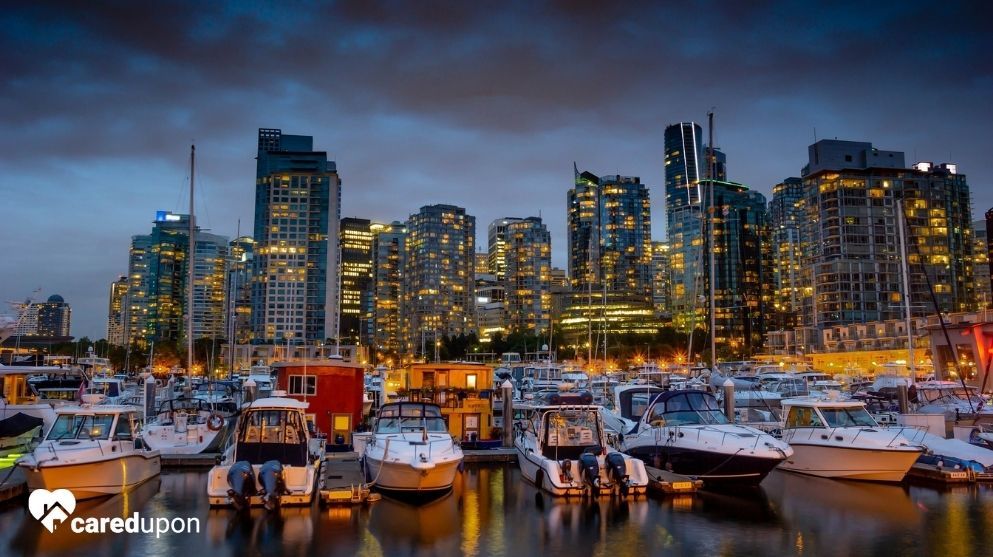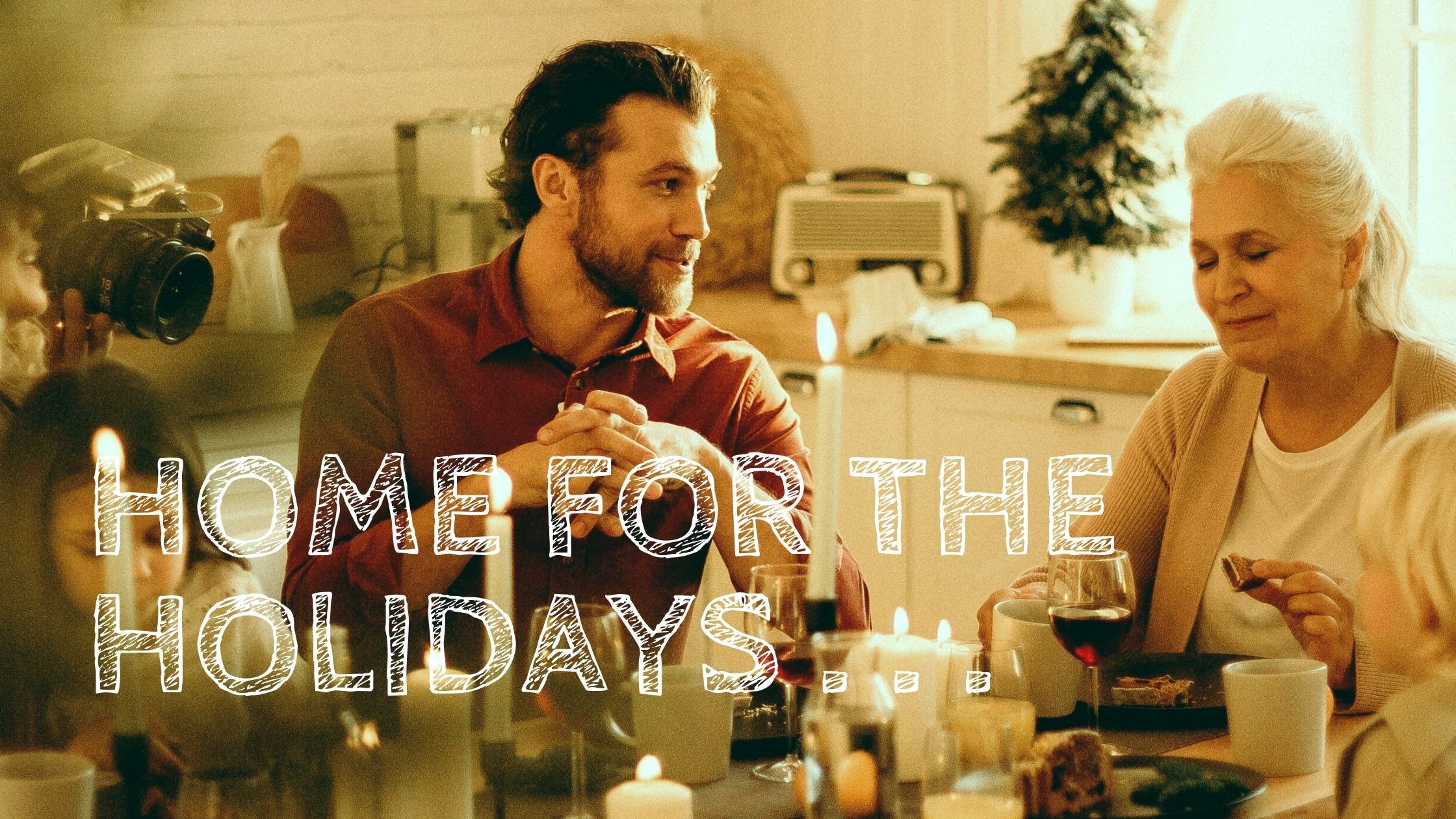A Guide to Retirement Care & Senior Living in Vancouver

With an abundance of lakes, mountains, parks, and natural west coast rainforests, it is to no surprise that Vancouver is known for holding the title of one of the most beautiful cities in the world. Its unique blend of nature, culture, ethnic diversity and rich history along with its high rankings for quality of life, environmental stability, and health care is why many consider the city as an attractive one to retire in. When it comes to senior living and lifestyle, many are also drawn to Vancouver as it offers a diverse range of seasonal activities such as boating, hiking, biking, and fishing. Whether it is a retirement home by the waterfront or right in the heart of the city, Cared Upon is here to help you find a retirement community fit for your needs in Vancouver.
Lifestyle & Activities
Retirees settling down in Vancouver can find easy access to outdoor spaces such as parks, lakes, rivers, biking paths, hiking trails, and even mountains. If you enjoy spending your days in the outdoors, you may find yourself walking or biking along the world's longest uninterrupted waterfront trail at Stanley Park. You’ll also find an abundance of gardens and conservatories - such as the VanDusen Botanical Garden and the Bloedel Conservatory - to walk along and find unique species of plants and birds. Many Vancouver locals also take advantage of the fact that it is a coastal city filled with lakes and rivers and head down to one of the many lakes to go boating, fishing, or swimming during the summertime.
Weather and Climate
Vancouver has a mild, oceanic climate with a reputation for rainfall. The city is also one of the warmest cities in Canada, as the average winter temperature on the west coast remains above freezing. You can expect average temperatures during the winter to range anywhere from 0-5°C (32-41°F), with occasional cold spells that can reach up to -12°C (10°F). Summertime in Vancouver is drier, with less precipitation and more sunshine. You can expect the average summer temperature to range from 17-27°C (62-80°F).
Housing options in Vancouver: Finding the Right Fit for you
Older adults residing in Vancouver have a number of options when it comes to retirement housing, from ageing in place to assisted living. Retirees in Vancouver are entitled to care and support through either publicly subsidized care or private pay providers. Older adults that are eligible for publicly subsidized home services can access these services through health authorities and contracted providers once they have gone through a formal assessment to determine the type of care they need. On the other hand, individuals who wish to choose their desired care service can do so by accessing these services directly from a service provider. To search for a care service provider in Vancouver, visit the search portal on caredupon.ca.
Cost of Retiring in Vancouver: Budgeting and Financing
The cost of retiring in Vancouver can vary depending on the quality of care you wish to receive. For instance, the cost of assisted living in Vancouver typically starts at $3000, but you may find subsidized options to fit your budget. Factors such as the type of healthcare needed, the lifestyle you wish to have, and how much money you’ll receive from investments and pensions will all impact the cost of your retirement plan. You can access the Canadian Government website as they provide a useful budget planning tool to help set you up for your personal retirement goals.
Government Funding
When retiring in Vancouver, you may also access several financial resources funded by the Government to help you prepare and pay for your retirement. If eligible, you may access funding through Government programs such as the Canadian Pension Plan Retirement Pension (CPP), Guaranteed Income Supplement (GIS), Old Age Security Pension (OAS), and the Allowance for the Survivor benefit program. Additionally, low-income seniors residing in B.C. that are entitled to Old Age Security Pension (OAS) and Guaranteed Income Supplement (GIS) allowances can continue receiving these payments even when moved into a long-term care facility. For more information on Government contributions, visit our care blog.
Post-retirement Income Sources
In the case that you do not meet the eligibility criteria for receiving Government funding, you have several options for post-retirement income sources.
Registered Retirement Savings Plans (RRSPs) and Tax-Free Savings Accounts (TFSAs): Using a Registered Retirement Savings Plans (RRSPs) or a Tax-Free Savings Account (TFSAs), your post-retirement income is dependent on the amount you put into these accounts when you first began saving and the interest you received.
Investment accounts: You may prepare for retirement through more common forms of post-income sources using taxable investment accounts. These can include investments from accounts such as stocks and bonds.
Employer-sponsored pension plans: Under an employer-sponsored pension plan, you and your employer can contribute money over the course of your employment. When you decide to retire, you can access the income directly saved from the plan.
To learn more about your options for post-retirement income sources, visit our resource centre.
Access to Healthcare
Planning and supporting the health care of Vancouver's senior population is vital, as it is estimated that by 2029 approximately 30% of Canada’s seniors will be aged 75-84. Health care in Vancouver is ultimately managed by the Ministry of Health through a public health care system. Seniors residing in Vancouver have access to various healthcare programs, such as HealthLink BC, PharmaCare, the Travel Assistance Program, and the Medical Services Plan.
Medical Services Plan (MSP): To access health care, all Vancouver residents are required to sign up through MSP. Through the Medical Services Plan (MSP), British Columbians are insured for medically required services. Some of these medically required services include diagnostic procedures, laboratory services, physician and surgeon services, and approved dental and oral surgery services.
The Fair PharmaCare plan: Eligible seniors residing in Vancouver. can receive coverage on prescription drugs and medical supplies through The Fair PharmaCare plan, a health care plan that assists Vancouver seniors with medical costs based on their personal income.
HealthLink BC: HealthLink BC provides Vancouver citizens with 24/7 access to non-emergency health services and information in the province. Their information services cover the topics of health and health care, symptoms you are experiencing, and ways to manage healthy living.
Travel Assistance Living: The Travel Assistance Program (TAP) offers patients that require transportation to physician-referred, non-emergency services within the province when a specialist is not available in a community surrounding them. Transportation is offered at a discounted rate and is available to those who do not have travel expenses covered by insurance or other government programs.
Additional Resources
For further information, you can visit and/or contact these sources:
Fair PharmaCare: 604-683-7151 (Lower Mainland) or 1-800-663-7100 (Toll-free)
HealthLink BC: non-emergency health information hotline 8-1-1 toll-free or for deaf/hard of hearing patients: 7-1-1
Seniors Health Care Support Line: 1-877-952-3181
SeniorsBC - A resource centre for all older adults residing in B.C.
BC Seniors’ Guide – Information guide to all things healthy lifestyle-related for seniors



